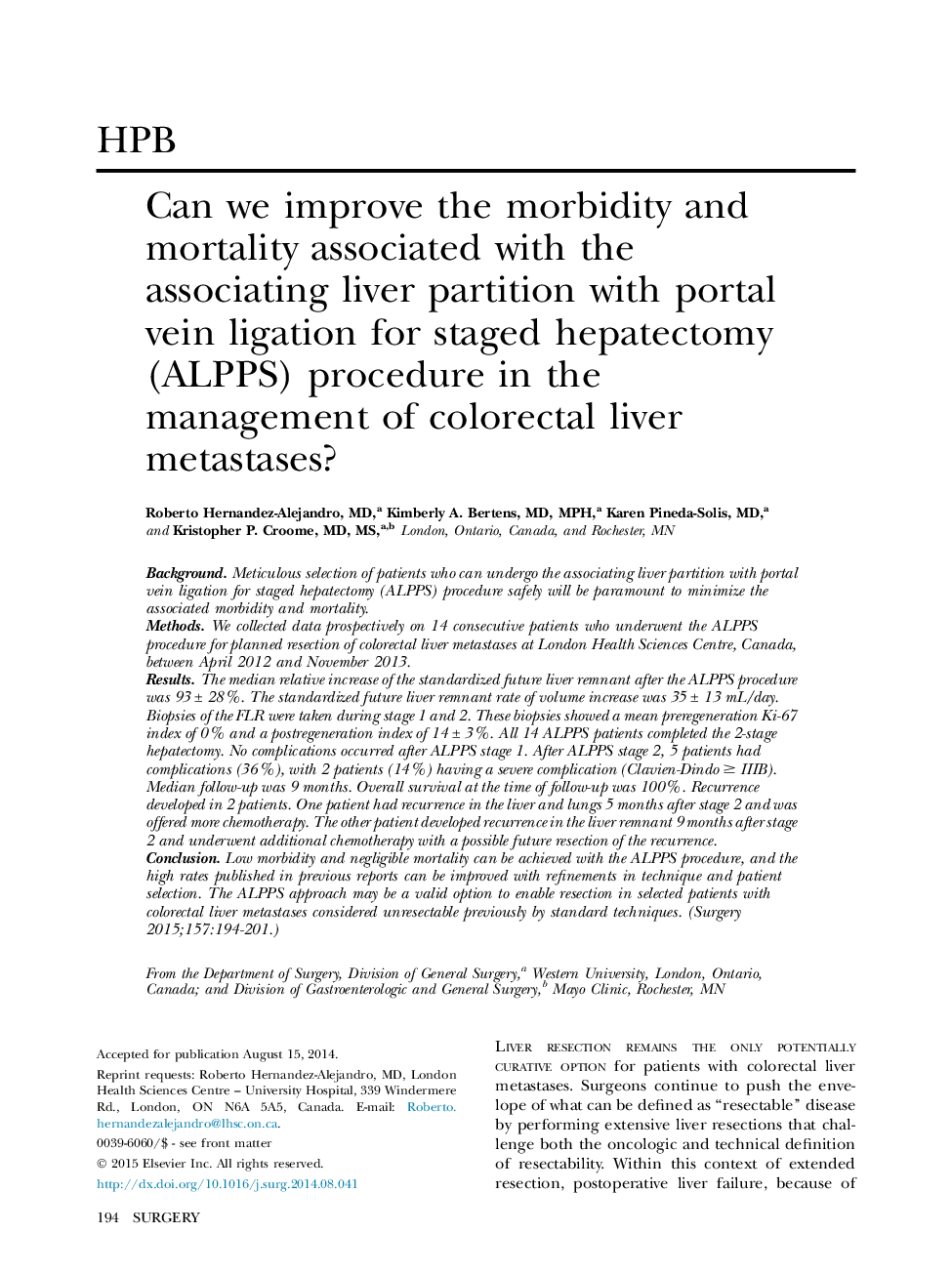| Article ID | Journal | Published Year | Pages | File Type |
|---|---|---|---|---|
| 6255457 | Surgery | 2015 | 8 Pages |
BackgroundMeticulous selection of patients who can undergo the associating liver partition with portal vein ligation for staged hepatectomy (ALPPS) procedure safely will be paramount to minimize the associated morbidity and mortality.MethodsWe collected data prospectively on 14 consecutive patients who underwent the ALPPS procedure for planned resection of colorectal liver metastases at London Health Sciences Centre, Canada, between April 2012 and November 2013.ResultsThe median relative increase of the standardized future liver remnant after the ALPPS procedure was 93 ± 28%. The standardized future liver remnant rate of volume increase was 35 ± 13 mL/day. Biopsies of the FLR were taken during stage 1 and 2. These biopsies showed a mean preregeneration Ki-67 index of 0% and a postregeneration index of 14 ± 3%. All 14 ALPPS patients completed the 2-stage hepatectomy. No complications occurred after ALPPS stage 1. After ALPPS stage 2, 5 patients had complications (36%), with 2 patients (14%) having a severe complication (Clavien-Dindo â¥Â IIIB). Median follow-up was 9 months. Overall survival at the time of follow-up was 100%. Recurrence developed in 2 patients. One patient had recurrence in the liver and lungs 5 months after stage 2 and was offered more chemotherapy. The other patient developed recurrence in the liver remnant 9 months after stage 2 and underwent additional chemotherapy with a possible future resection of the recurrence.ConclusionLow morbidity and negligible mortality can be achieved with the ALPPS procedure, and the high rates published in previous reports can be improved with refinements in technique and patient selection. The ALPPS approach may be a valid option to enable resection in selected patients with colorectal liver metastases considered unresectable previously by standard techniques.
